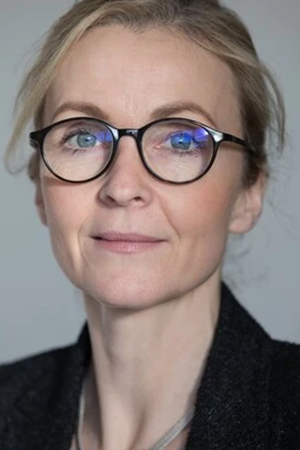Celebrating two years of the SickKids Mental Health Strategy
Summary:
SickKids is pleased to introduce the new co-chair of the Mental Health Strategy and share her vision as we work to provide transformative mental health care.
The Hospital for Sick Children (SickKids) launched the SickKids Mental Health Strategy in 2020 to address a compelling need: one in five children has a mental health disorder, only one in six of those are able to access the mental health care they need and up to 40 per cent of children with a chronic physical condition also have a mental health challenge.
As we recognize the two-year anniversary of the Mental Health Strategy, SickKids is pleased to welcome a new co-chair to champion the evolution of child and youth mental health care and create a safer and healthier community.
Dr. Louise Gallagher joined SickKids earlier this year as Chief of the Department of Psychiatry and the Child and Youth Mental Health Collaborative. Gallagher brings with her a wealth of knowledge, experience and dedication to the world of paediatric psychiatry and child and youth mental health. Today, we spotlight Gallagher’s vision for the future of the SickKids Mental Health Strategy.
Coming from Dublin, what learnings do you think you can bring to the Canadian child and youth mental health system?

Mental health and mental illness are universal experiences that affects children and youth globally. One major shift in recent times is the growth in prevalence of anxiety and mood disorders, deliberate self-harm and, particularly during the pandemic, of eating disorders.
There are many shared experiences and challenges in different systems, and many parallels between Ireland and Toronto. Challenges with access, waiting times, growing acuity, recruitment and retention of psychiatrists and other mental health professionals are universal. In addition, Ireland and Toronto are very similar in that both have very young populations, an important factor to consider in health service planning.
One of the main differences between Ireland and Toronto is the differences in level of complexity between the two mental health systems and how mental health care is provided and accessed. In Toronto, there is less standardization of service provision across the mental health system and I think that this is an area where there is much appetite for change – so patients and families can more easily find the services they need. Toronto is also a highly diverse multicultural city and it is imperative to consider culturally appropriate care and how to make services more equitable and inclusive.
All health systems are challenged to provide the best possible mental health care for children and young people. There is still much work that we need to do to improve our understanding of the factors that contribute to mental health and mental illness, with grounding in evidence-based research, so that we can further improve strategies for mental health promotion, prevention and intervention.
How can we bridge the gap between research evidence and improved mental health services?
Integrating research evidence into clinical care is one of the biggest challenges across all medical specialties. Clinical research networks, strategic approaches to research, improved collaboration and a strong research culture are some ways to address these barriers.
We are extremely fortunate that there is a vibrant mental health research environment at SickKids, including through the Neurosciences & Mental Health program at SickKids Research Institute. The SickKids Mental Health Strategy prioritizes research integration into clinical care, precision child mental health supporting collaboration and the advancement of measurement-based care. Ultimately the goal is to develop a learning health system which continually uses data and care experiences to improve care and outcomes. This is an iterative process and we need to constantly work to improve our services and integrate new knowledge as it is generated.
As we approach 2023, what are you most looking forward to for the future of SickKids’ Mental Health Strategy?
The next stages of the strategy will allow us to examine challenges and areas of opportunity in the mental health system. In the coming months, our implementation teams at SickKids are launching three pilot projects that will support the early identification of patient mental health concerns, integrate new tools for measurement-based mental health care, and improve mental health education for SickKids care providers. We will also aim to address challenges with the complexity of the system and the standardization of care through greater evidence synthesis, building capacity for mental health promotion, advocating to address the social determinants of health and partnering with other leading mental health agencies to drive system change.
The strategy team will be setting our key priorities early in 2023, but suicide and deliberate self-harm is an area of urgent need. In Canada, suicide is the second leading cause of death in males in the 15-24 year age group. Despite this, there is no suicide strategy at a provincial or national level. I think this is an area where SickKids and other leading mental health agencies can take some leadership.
What impact do you hope the SickKids Mental Health Strategy will have on patients and families?
It is quite simple, “Better Mental Health. A better world.” Better mental health for children and youth means more opportunities to engage in developmentally important activities like play, education and sport. SickKids is coming together to provide children and youth with transformative mental health care.


